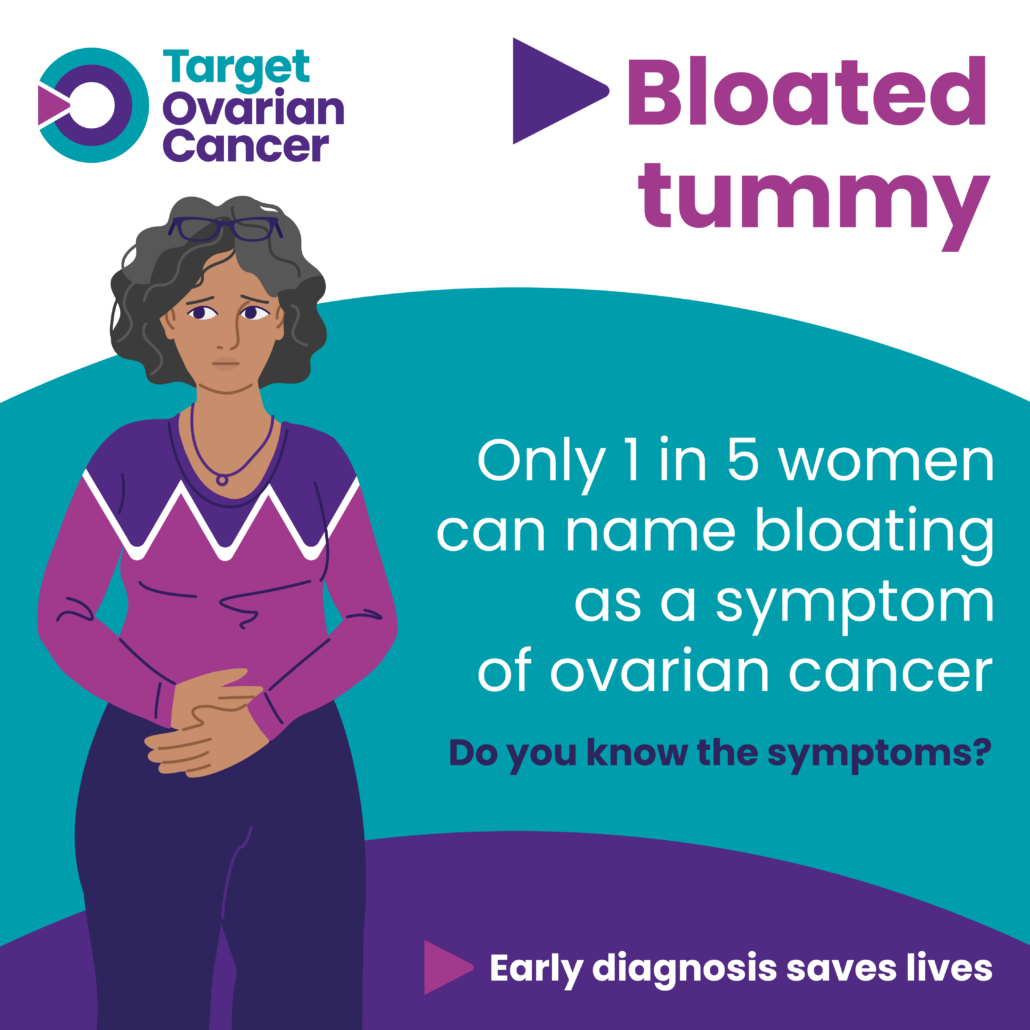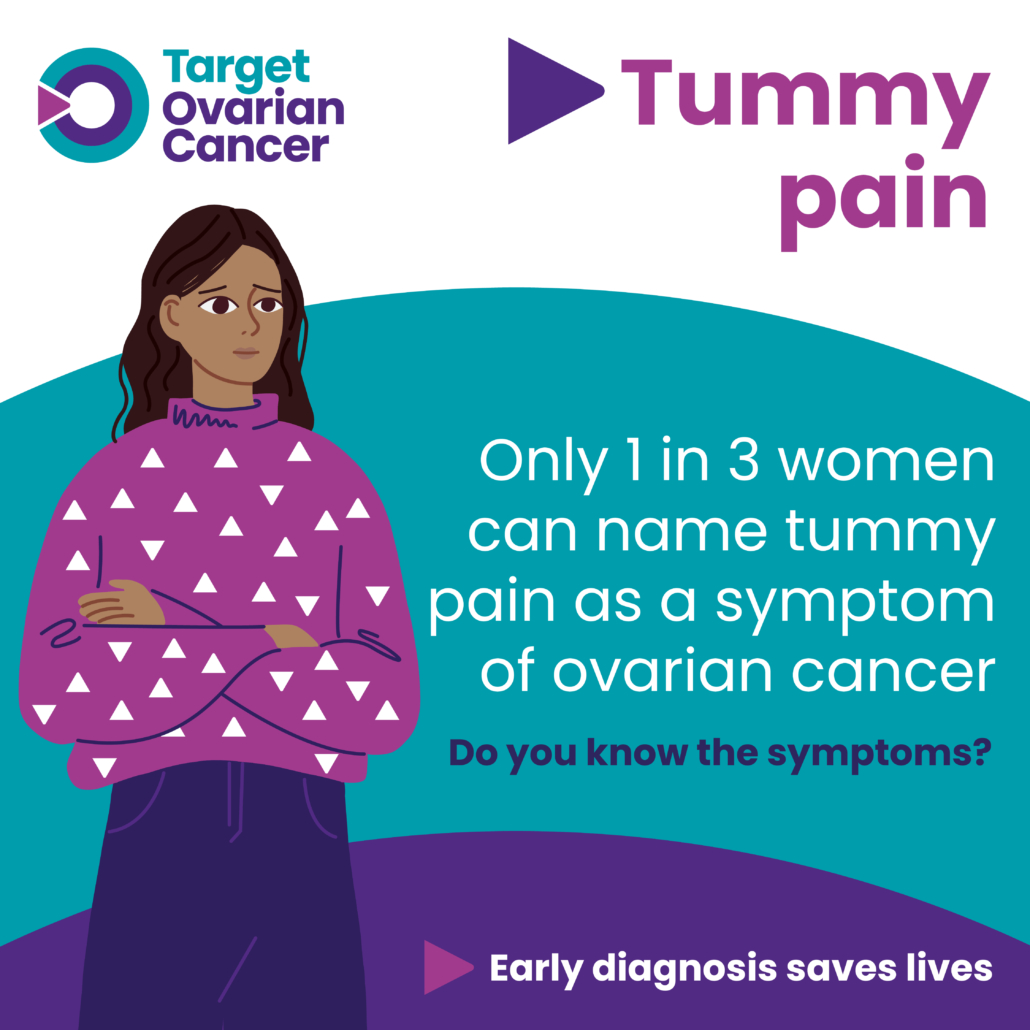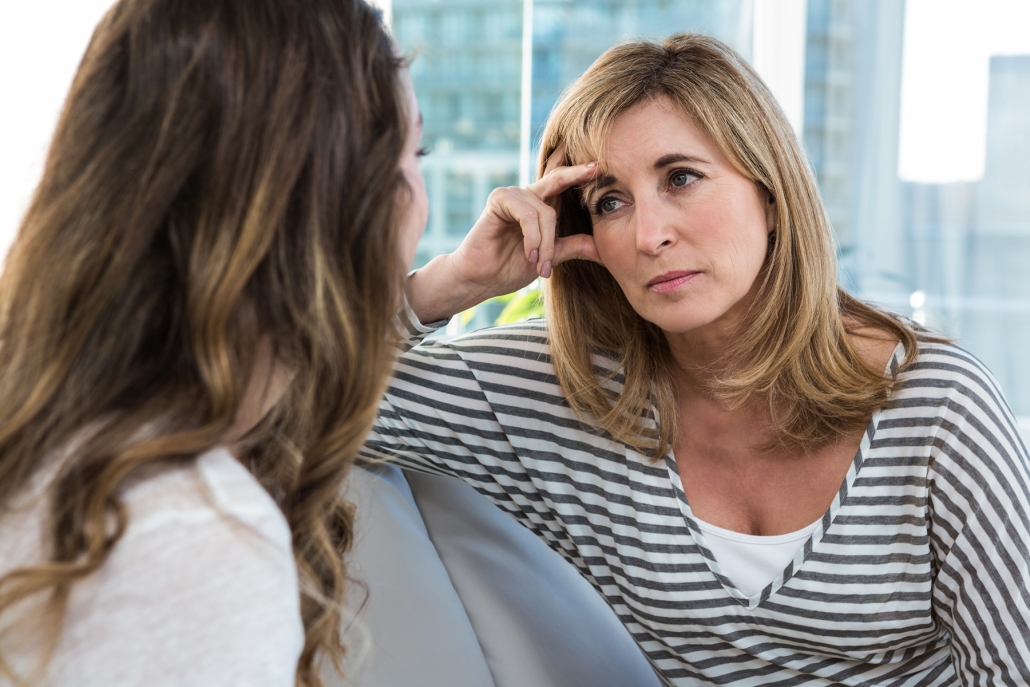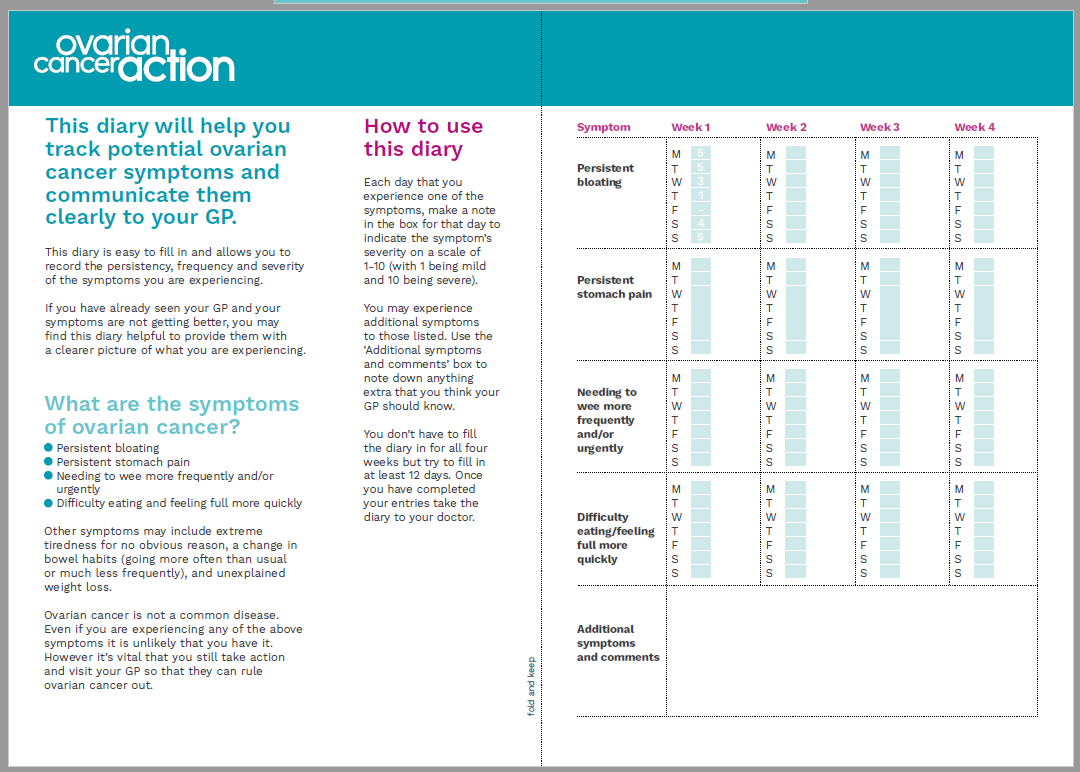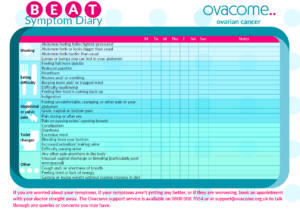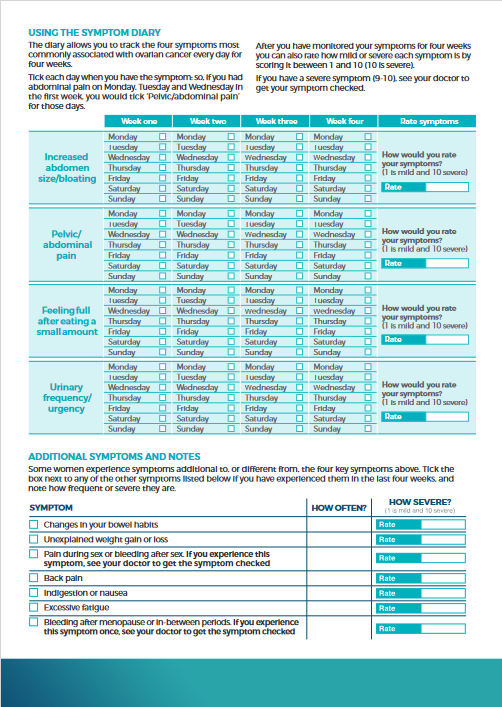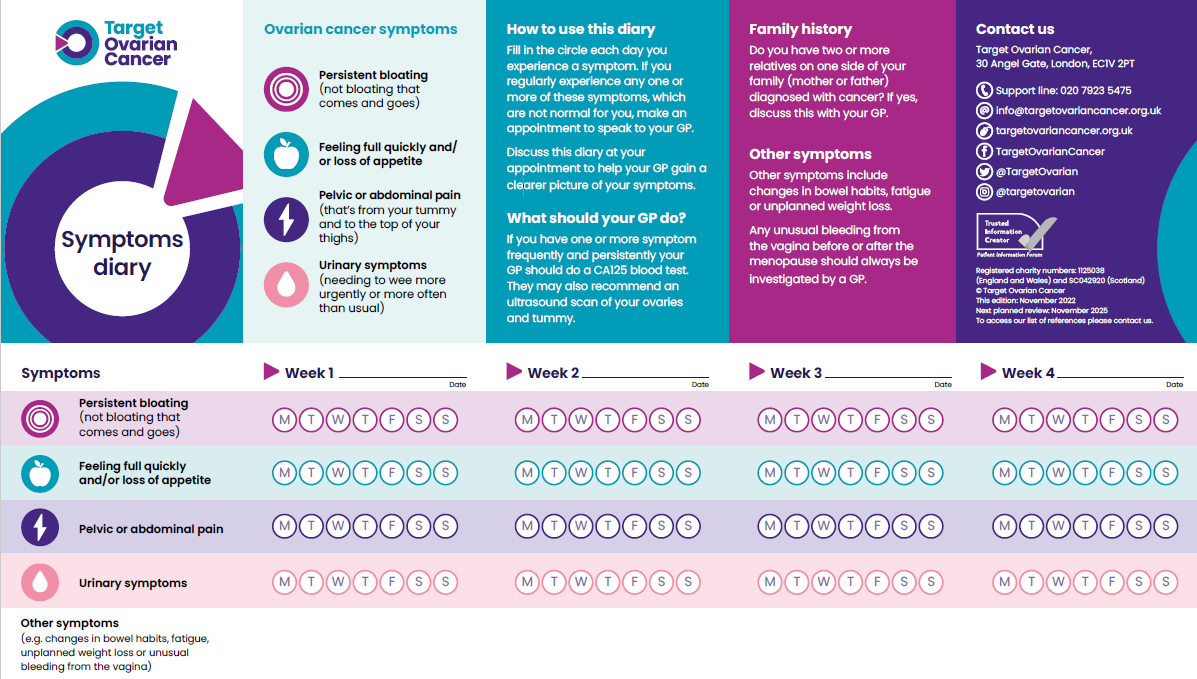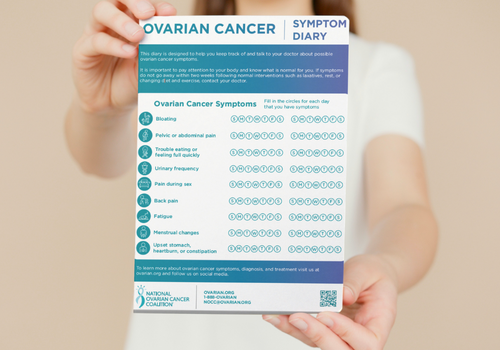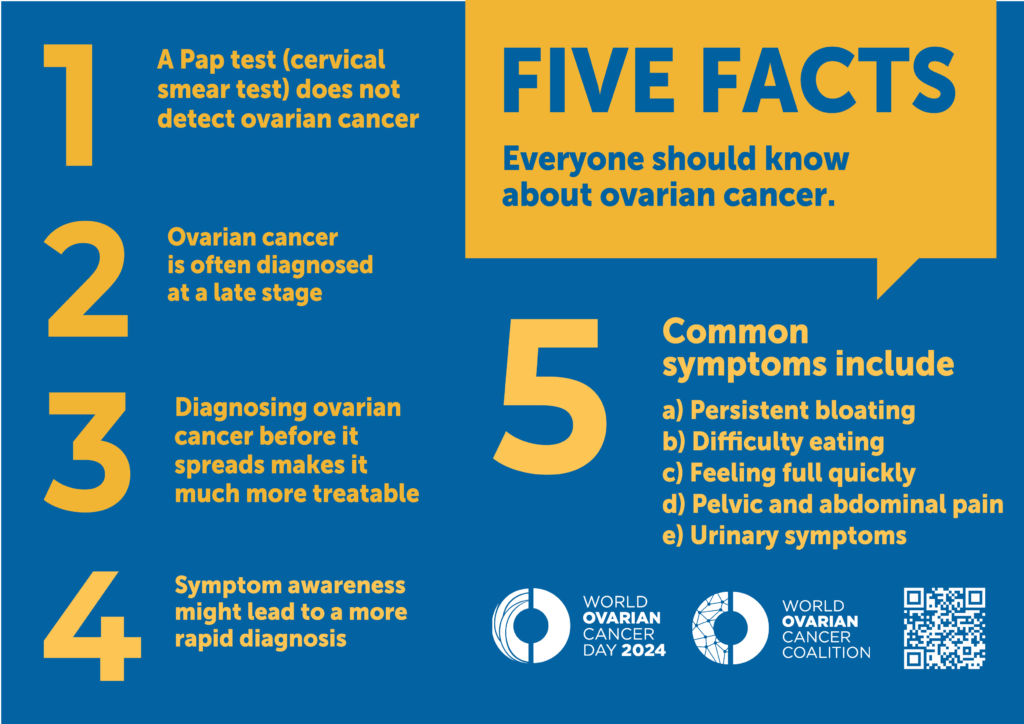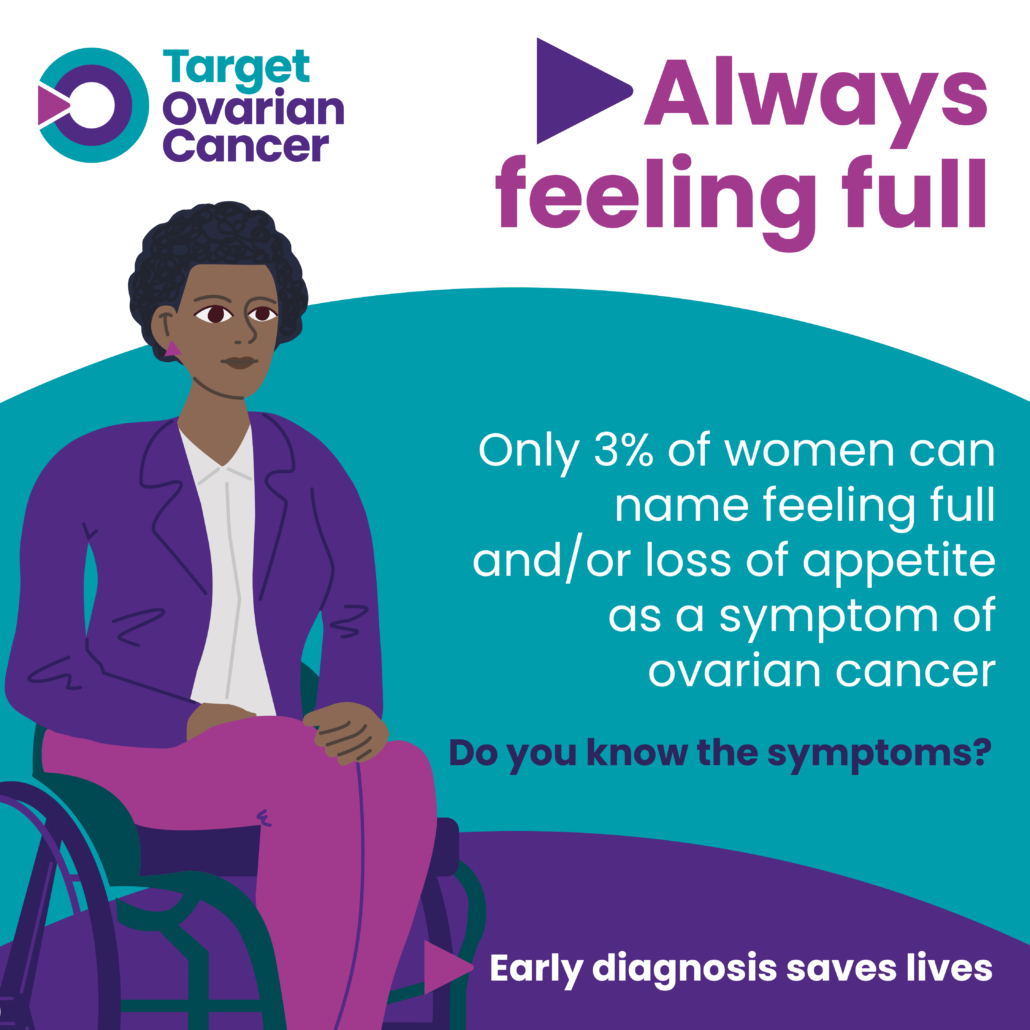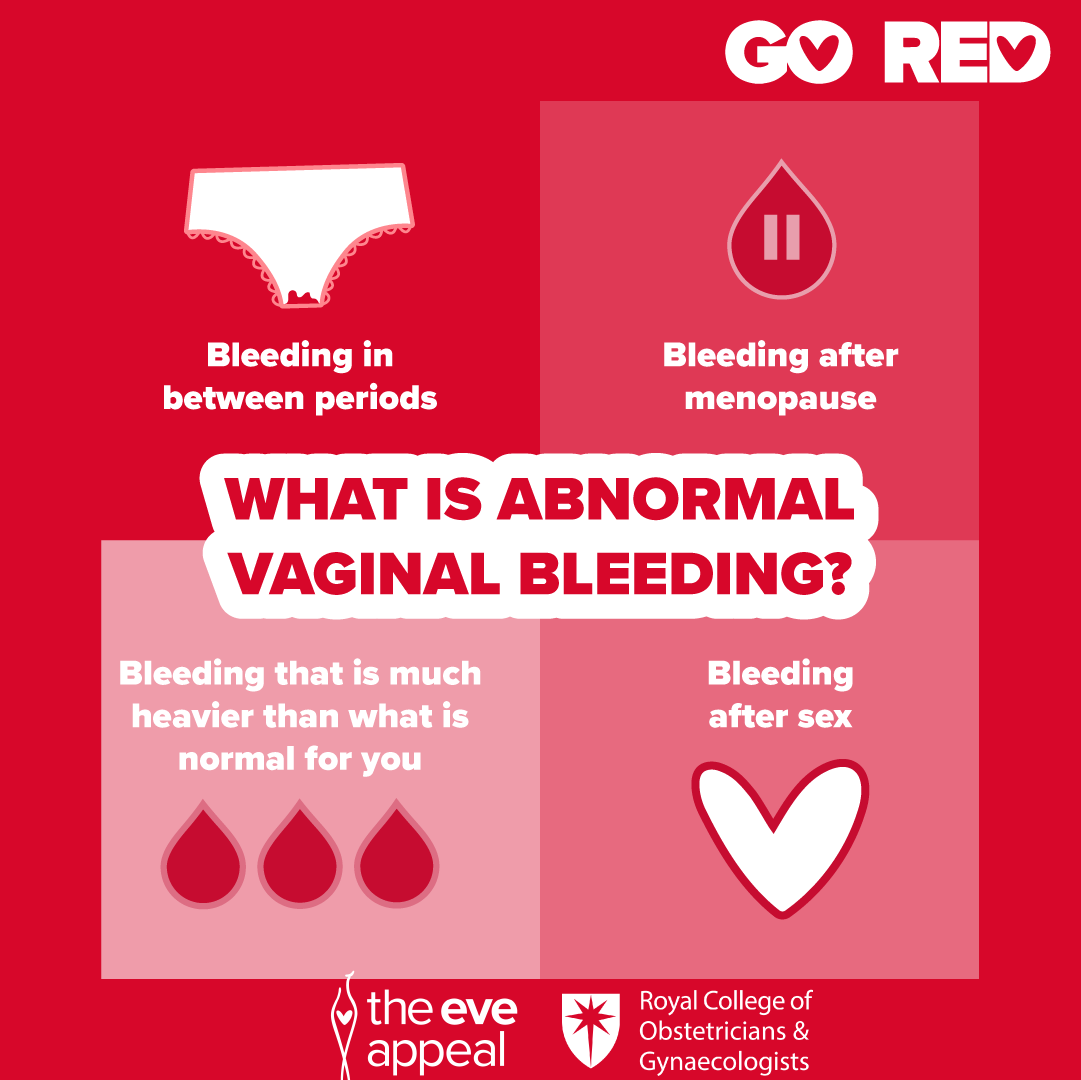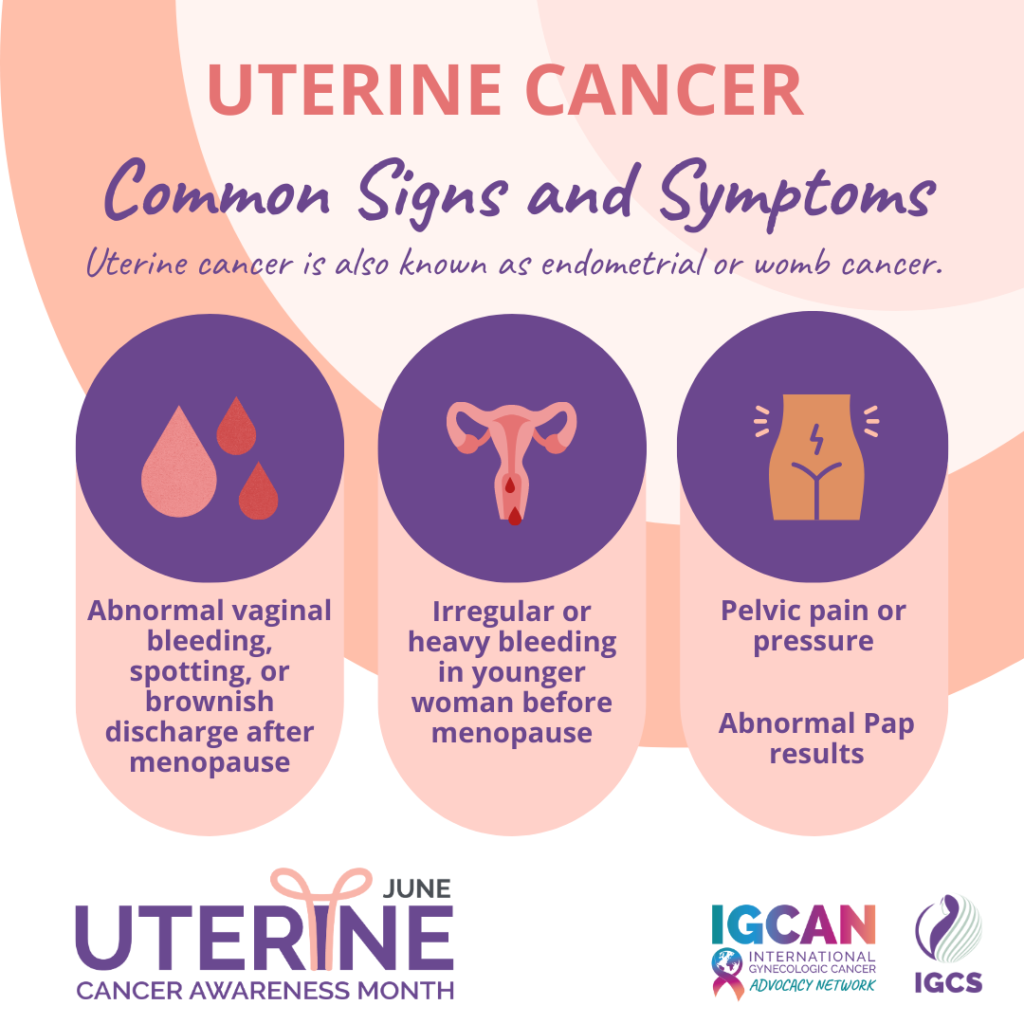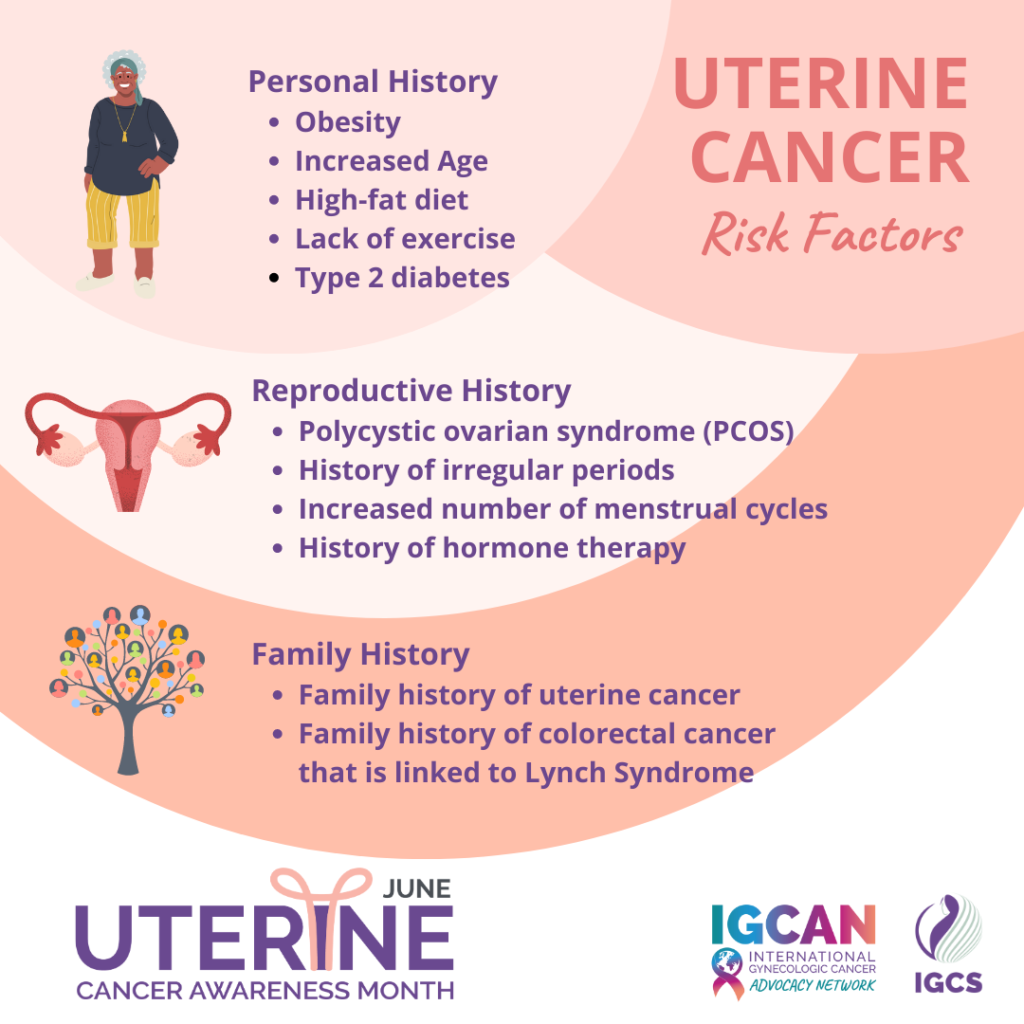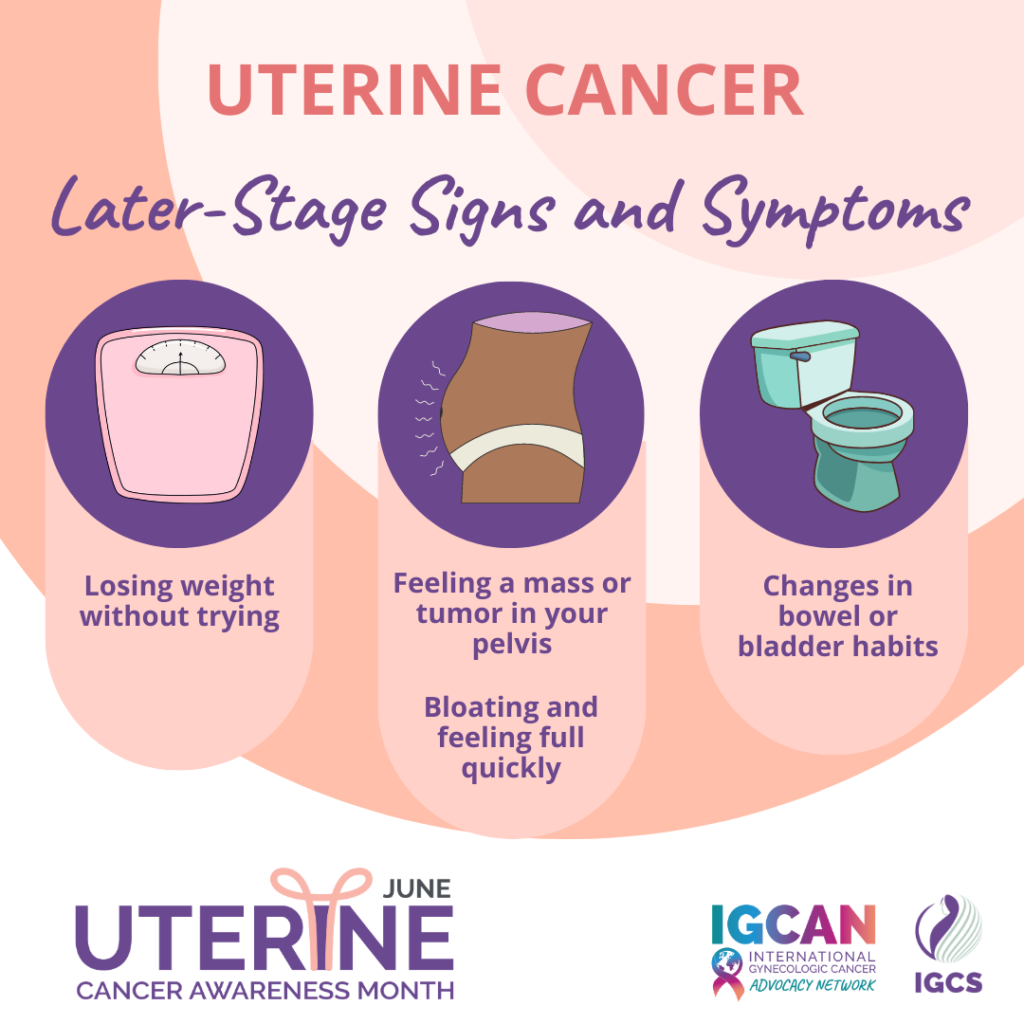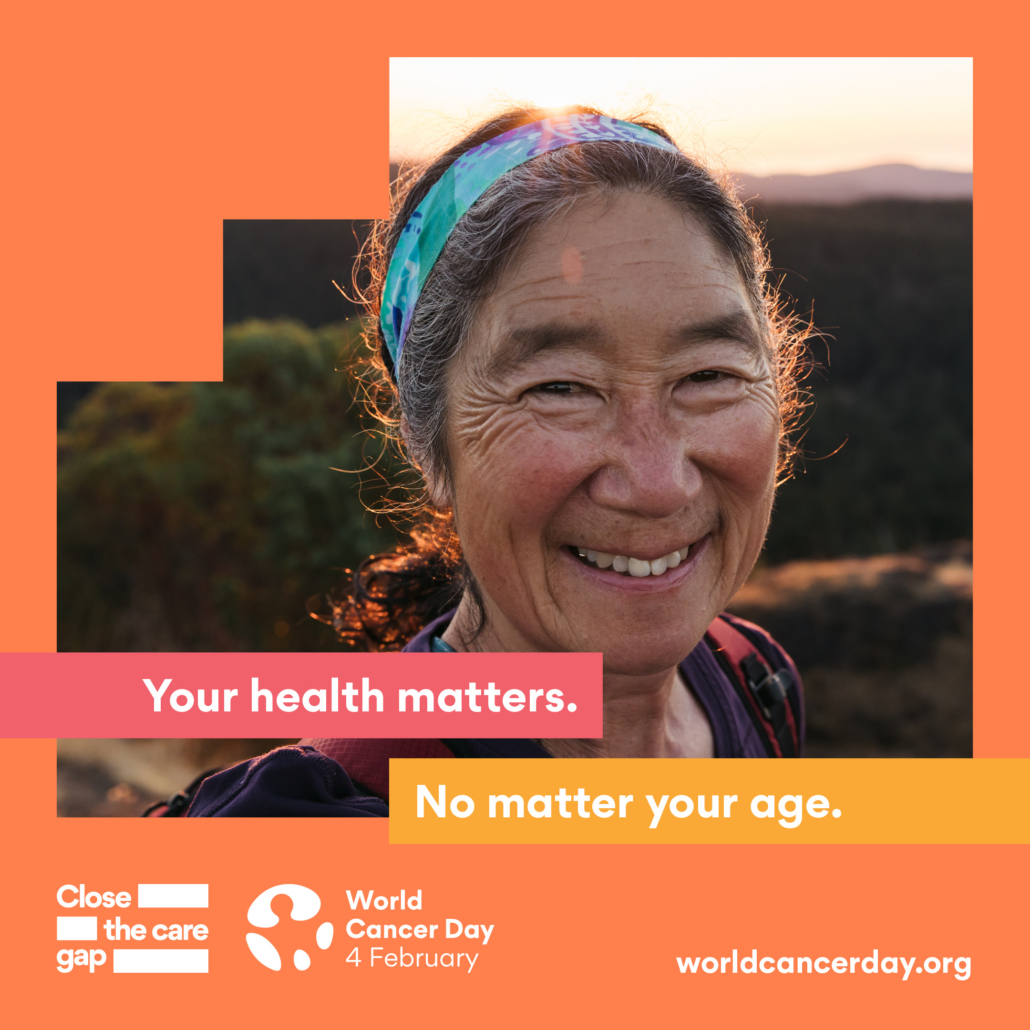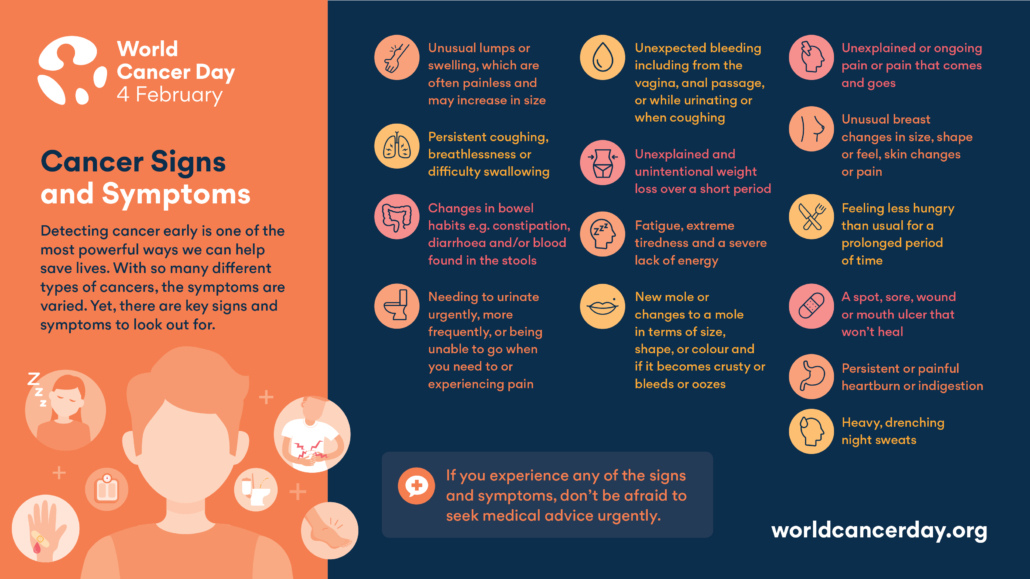During Ovarian Cancer Awareness Month and Menopause it can be important to note “Most cases of ovarian cancer happen in those who have already gone through the menopause (when you stop having periods)”.
Ovarian Cancer Awareness Month 2024
What is Ovarian Cancer Awareness Month in March 2024 in the United Kingdom (UK)?
In Ovarian Cancer Awareness Month: What Is Ovarian Cancer Awareness Month? the (UK) Target Ovarian Cancer explain:
In the UK, over 7,000 women are diagnosed with ovarian cancer every year. Two thirds of women are diagnosed with ovarian cancer too late when the cancer is harder to treat. And every day, 11 women die.”
Age
Is there an association between the risk of developing ovarian cancer and getting older?
In Ovarian Cancer Risk: Age the Target Ovarian Cancer note:
Although it’s not common, if you’re younger and haven’t been through the menopause you can get ovarian cancer. Over 1,000 women under the age of 50 develop ovarian cancer every year. That’s why it’s important that everyone is aware of the symptoms of ovarian cancer. This is especially important if you have a family history of ovarian or breast cancer”.
In Ovarian Cancer: About Ovarian Cancer – Key Statistics for Ovarian Cancer according to the (United States) American Cancer Society:
Pap Test
Does the Pap test check for ovarian cancer?
No. In Ovarian Cancer Testing & Detection the World Cancer Coalition note:
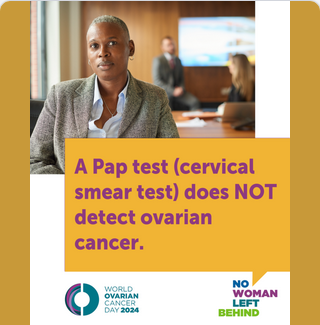
Symptoms
What are the symptoms of ovarian cancer?
In Symptoms of Ovarian Cancer: What Are the Symptoms? the [United Kingdom] Target Ovarian Cancer elaborate on:
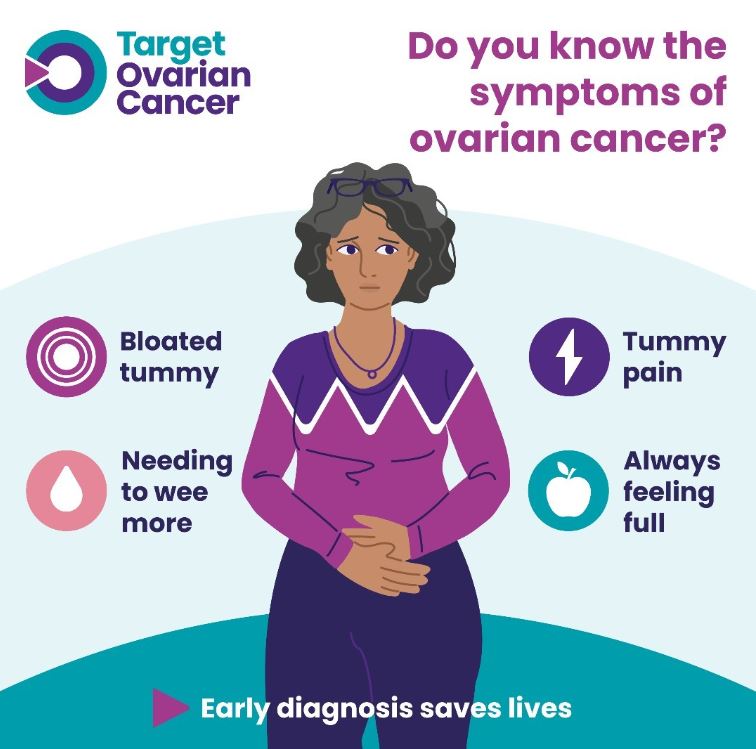
- “Persistent bloating (not bloating that comes and goes)
- Feeling full quickly and/or loss of appetite
- Pelvic or abdominal pain (that’s from your tummy to the top of your thighs)
- Urinary symptoms (needing to wee more urgently or more often than usual)”.
Other Symptoms
Occasionally what can be other symptoms of ovarian cancer?
In Symptoms of Ovarian Cancer: What Are the Symptoms? Target Ovarian Cancer also explain:
- Changes in bowel habit (e.g. diarrhoea or constipation)
- Extreme fatigue (feeling very tired)
- Unplanned weight loss
- Any unusual bleeding from the vagina before or after the menopause should always be investigated by a GP”.
In Symptoms of Ovarian Cancer: What Are the Symptoms? Target Ovarian Cancer note:
- New – they’re not normal for you
- Frequent – they usually happen more than 12 times a month
- Persistent – they don’t go away”.
 Health Care Provider
Health Care Provider
What if I think I am experiencing symptoms of ovarian cancer?
In Symptoms of Ovarian Cancer: Worried About Your Symptom? Target Ovarian Cancer elaborate on:
If two or more of your close relatives have had cancer you should tell your GP as ovarian cancer can run in families”.
Who is a GP?
DotS and DotC (Depending on the Country) a GP may be a qualified and registered general practitioner, a medical practitioner, a medical doctor or a doctor.
Health Topics A-Z
Where may I find Health Topics related to Ovarian Cancer Awareness Month and Menopause?
In Health Topics A-Z you may find:
Ovarian Cancer Symptom Diary Links
Where may I find Links related to Ovarian Cancer Symptom Diary?
Your Country may have Links similar to:
Ovarian Cancer Symptom Diary
- Experiencing Ovarian Cancer Symptoms? How To Talk To Your GP About Your Concerns: Keep Track of Your Symptoms – Paper Symptoms Diary

- Symptom Diary: B.E.A.T. Symptom Diary

- Symptoms: Learn the Signs and Symptoms of Ovarian Cancer – Symptom Diary

- Symptoms: More Support – Symptom Diary

- What Are the Signs & Symptoms of Ovarian Cancer? Ovarian Cancer Symptom Diary

Links
Where may I find Links related to Ovarian Cancer Awareness Month and Menopause?
Your Country may have Links similar to:
Links
This Links List to third party websites is neither comprehensive nor exhaustive. Inclusion on this Links List does not imply endorsement or recommendation. Non-inclusion on this Links List does not imply non-endorsement or non-recommendation. Third party websites are not under the control of Meno Martha International Menopause Directory. Third party websites may contain explicit medical images and/or sexual references. Please read Meno Martha International Menopause Directory’s Links Policy before proceeding to a Link. Please contact Webmaster if you experience a problem with a Link.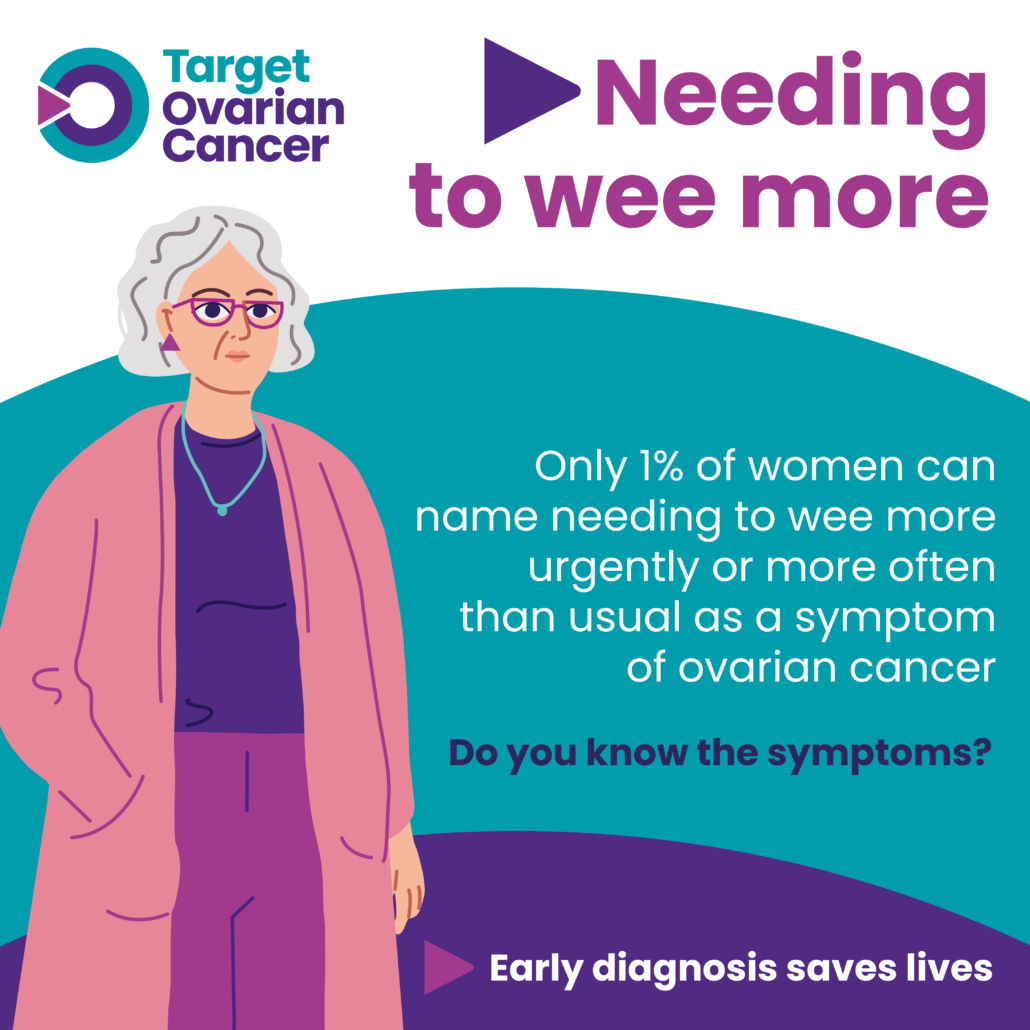
- A To Z of Ovarian Cancer
- About Ovarian Cancer
- CA125 Blood Test
- Five Facts of Ovarian Cancer

- Foundation for Women’s Cancer [United States]
- Ovarian Cancer Awareness Month
- Ovarian Cancer Awareness Month

- Ovarian Cancer/Primary Peritoneal
- Ovarian, Fallopian Tube, and Primary Peritoneal Cancer–Patient Version
- Symptom Diary [+ Video: Recognise the Signs and Symptoms of Ovarian Cancer]
- Symptoms of Ovarian Cancer
- Tips for Tracking Your Bleeding

- Top Tips for Speaking To Your GP
- Understanding Ovarian Cancer
- Video Series-2023: Changes In Sexual Health After Cancer
- Video Series-2023: Premature and Early Menopause
- Videos and Podcasts: Videos – Interviews: How Do I Deal With the Menopause After A Diagnosis of Gynaecological Cancer
- Webinars: Previous – Sexual Dysfunctions, Update on Gynae Cancers and Management
- What Is Ovarian Cancer?
- What Is Ovarian Cancer? [Video]
- Worldovariancancercoalition.org [World Ovarian Cancer Coalition]
- You and Ovarian Cancer: An Animated Patient’s Guide To Ovarian Cancer



